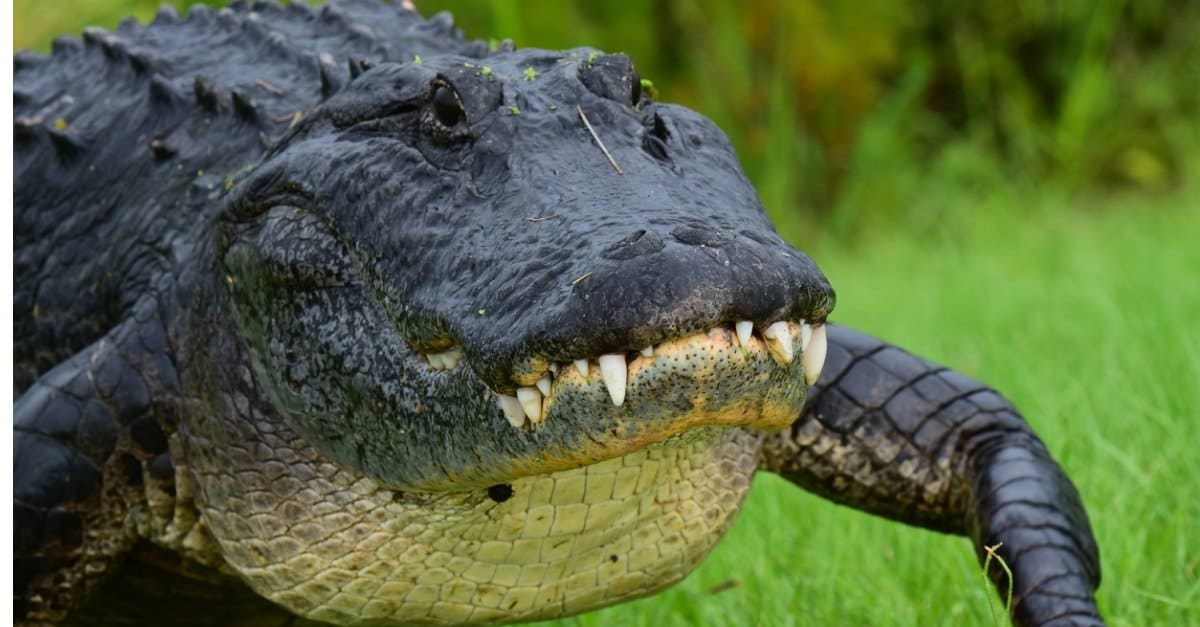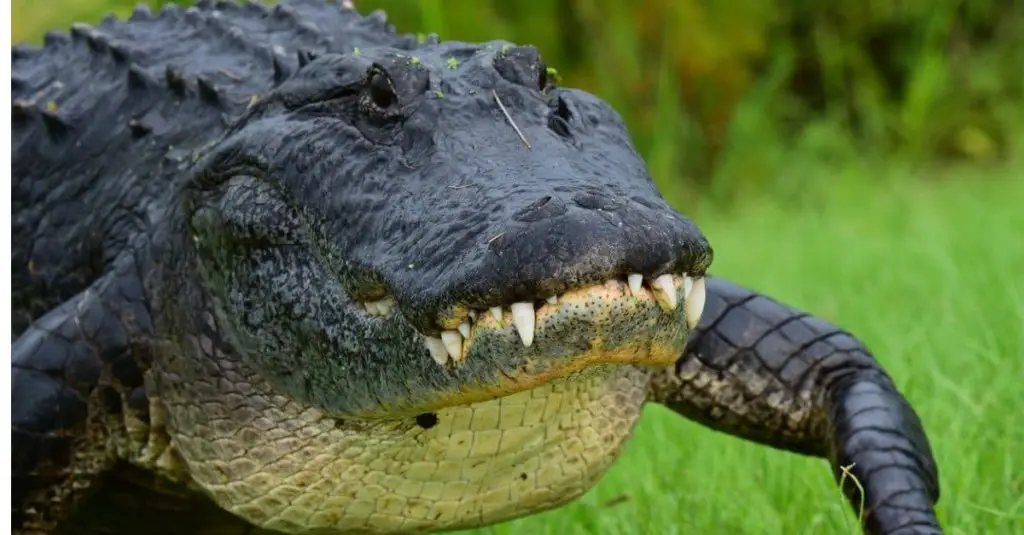Alligators have been a source of fascination for humans for centuries, with their powerful jaws and prehistoric appearance. One of the most common questions people ask about these creatures is, “how long do alligators live?”
The answer to this question is not as straightforward as you may think. While alligators can live for several decades in the wild, their lifespan can be influenced by a variety of factors, including habitat, diet, and other environmental conditions. In this article, we will explore the different factors that can impact an alligator’s lifespan and discover what we can do to help these incredible creatures thrive in their natural habitats.
Alligators can live up to 50 years in the wild. However, in captivity, they can live much longer, up to 70 years or more. These reptiles are known for their longevity and have few natural predators, which contributes to their long lifespan. Factors such as diet, habitat, and genetics can also affect their lifespan.

How Long Do Alligators Live?
Alligators are fascinating creatures that have been around for millions of years. These ancient reptiles have captured the attention of humans for centuries due to their size, strength, and unique behaviors. One of the most common questions people have about alligators is how long do they live? In this article, we will explore the lifespan of alligators and what factors can influence their longevity.
1. Life Expectancy of Alligators
Alligators can live for a long time, with some individuals reaching over 60 years of age in the wild. However, the average lifespan for alligators is between 35 to 50 years. The lifespan of alligators can vary depending on several factors, including genetics, environment, and diet.
Alligators that are raised in captivity tend to live longer than those in the wild due to the absence of predators and a consistent food supply. In fact, some captive alligators have lived for over 80 years. On the other hand, alligators in the wild face many challenges that can shorten their lifespan, such as predation, disease, habitat loss, and hunting by humans.
2. Factors Affecting the Lifespan of Alligators
Several factors can impact the lifespan of alligators. One of the most important factors is genetics. Alligators that come from long-lived parents tend to live longer than those from short-lived parents. Additionally, alligators that are raised in optimal conditions with access to plenty of food and clean water tend to live longer than those that are not.
Another factor that can affect the lifespan of alligators is their size. Larger alligators tend to live longer than smaller ones, as they are less vulnerable to predation and have more energy reserves. Finally, the health of the alligator can also impact its lifespan. Alligators that are infected with diseases or parasites may have shorter lifespans than healthy individuals.
3. Benefits of Alligators
Alligators play an important role in their ecosystems by helping to control populations of other animals. They are apex predators that can eat a variety of prey, including fish, birds, mammals, and other reptiles. By keeping populations of these animals in check, alligators help to maintain the balance of their ecosystems.
Alligators also provide economic benefits to humans through ecotourism and the sale of their hides and meat. Many people enjoy observing alligators in their natural habitats, and some even participate in guided tours to see them up close. Additionally, alligator hides and meat are highly sought after for use in clothing, accessories, and food.
4. Alligators vs. Crocodiles
Alligators and crocodiles are often confused with each other, but there are several differences between these two types of reptiles. Alligators have a wide, rounded snout and are typically found in freshwater habitats, while crocodiles have a narrow, pointed snout and can be found in freshwater or saltwater habitats.
Additionally, alligators are generally less aggressive toward humans than crocodiles and are more tolerant of cooler temperatures. Finally, alligators have a more limited geographic range than crocodiles, as they are only found in the Americas, while crocodiles are found in Africa, Asia, Australia, and the Americas.
5. Conservation Status of Alligators
Alligators were once hunted to near extinction for their hides and meat, but conservation efforts have helped to increase their populations in recent years. In the United States, alligators are protected under the Endangered Species Act and are considered a species of least concern by the International Union for Conservation of Nature.
However, alligators still face threats from habitat loss, poaching, and climate change. It is important for humans to continue to protect these fascinating creatures and their habitats for future generations to enjoy.
6. Alligator Farming
Alligator farming is a practice that involves raising alligators in captivity for their hides and meat. This practice has become increasingly popular in recent years due to the high demand for alligator products. Alligator farming provides an alternative to hunting alligators in the wild and can help to reduce pressure on wild populations.
Additionally, alligator farming can provide economic benefits to local communities through the sale of alligator products and ecotourism. However, there are concerns about the welfare of alligators in captivity and the impact of alligator farming on wild populations.
7. Alligator Conservation Efforts
Several organizations are working to protect alligators and their habitats. These organizations include the Florida Fish and Wildlife Conservation Commission, the Louisiana Department of Wildlife and Fisheries, and the National Wildlife Federation. These organizations work to monitor alligator populations, conduct research on alligator behavior and ecology, and implement conservation measures to protect alligator habitats.
Additionally, individuals can help to protect alligators by supporting conservation efforts, visiting alligator sanctuaries and parks, and learning more about these fascinating creatures.
8. Interesting Facts About Alligators
Alligators are full of interesting facts and behaviors that make them unique. For example, alligators are one of the few reptiles that care for their young. Female alligators will build nests for their eggs and then guard them until they hatch. Additionally, alligators can hold their breath for up to two hours and can run up to 11 miles per hour in short bursts.
9. Alligator Conservation Programs
Several programs exist that aim to conserve alligator populations and their habitats. These programs include habitat restoration projects, alligator monitoring programs, and education initiatives. By supporting these programs, individuals can help to protect alligators and ensure that they continue to thrive in their natural habitats.
10. Conclusion
Alligators are fascinating creatures with a long history on Earth. They are apex predators that play an important role in their ecosystems and provide economic benefits to humans. While alligators face threats from habitat loss and hunting, conservation efforts have helped to increase their populations in recent years. By learning more about alligators and supporting conservation efforts, we can help to protect these amazing creatures for generations to come.
**Frequently Asked Questions**
Alligators are fascinating creatures that have sparked the curiosity of many people. Here are some common questions people ask about the lifespan of alligators.
What is the average lifespan of an alligator?
Alligators are known to live long lives. On average, they live for 35-50 years in the wild. However, some alligators can live up to 70 years in captivity. This is because they are protected from predators and have access to a steady supply of food and medical attention.
Alligators are also known to grow continuously throughout their lives. This means that the older an alligator gets, the larger it becomes. This can make it easier for them to dominate their territory and find food.
What factors affect the lifespan of alligators?
The lifespan of alligators can be affected by different factors. One of the main factors is their habitat. Alligators that live in areas with a good supply of food and water tend to live longer than those that live in areas where there is a shortage of resources.
Other factors that can affect the lifespan of alligators include disease, habitat destruction, and climate change. These factors can make it difficult for alligators to survive and reproduce, which can lead to a decline in their population.
Can alligators live longer in captivity?
Yes, alligators can live longer in captivity than in the wild. This is because they are protected from predators and have access to a steady supply of food and medical attention. Alligators that live in captivity can live up to 70 years, which is significantly longer than the average lifespan of alligators in the wild.
However, it’s important to note that alligators that are kept in captivity need to be in a suitable environment. They need enough space to move around, access to water, and a suitable diet. If these requirements are not met, they can suffer from health problems that can shorten their lifespan.
What is the oldest recorded alligator?
The oldest recorded alligator is named “Muja,” who lives in the Belgrade Zoo in Serbia. Muja was born in 1937 and is still alive today, making him over 84 years old. Muja has survived two world wars and has become a beloved attraction in the zoo.
Muja’s longevity is attributed to his good care in captivity. He has access to a large pond, a heated area to sunbathe, and a varied diet that includes fish, chicken, and beef.
Do alligators die of old age?
Yes, alligators do die of old age. As alligators get older, they become more vulnerable to diseases and health problems. When an alligator reaches the end of its life, it may become weaker and lose its ability to hunt for food. This can lead to starvation and death.
Alligators that die of old age typically have a slower decline in health than those that die from other causes, such as predation or disease. They may become less active and more sluggish, but they can still survive for several years before eventually passing away.
How Long Do Crocodiles Live?
In conclusion, alligators are fascinating creatures that have captured the imagination of people for many years. Their longevity is just one aspect of their incredible resilience in the wild. While some alligators may only live for a few decades, others can survive for over a century, making them some of the longest-living reptiles on the planet.
Despite their fearsome reputation, alligators play a vital role in maintaining the balance of the ecosystem in which they live. By controlling the populations of prey species and helping to shape the environment around them, alligators are an integral part of the natural world.
Whether you are a wildlife enthusiast or simply curious about these amazing creatures, understanding how long alligators live is an important part of appreciating their unique place in the world. So next time you see an alligator, take a moment to appreciate the incredible journey that has led it to that moment, and the many more years of life it may have ahead.


